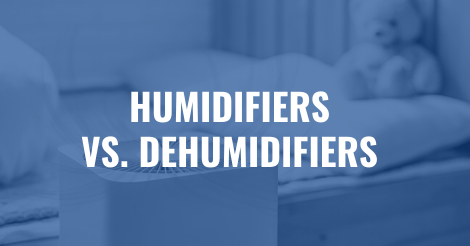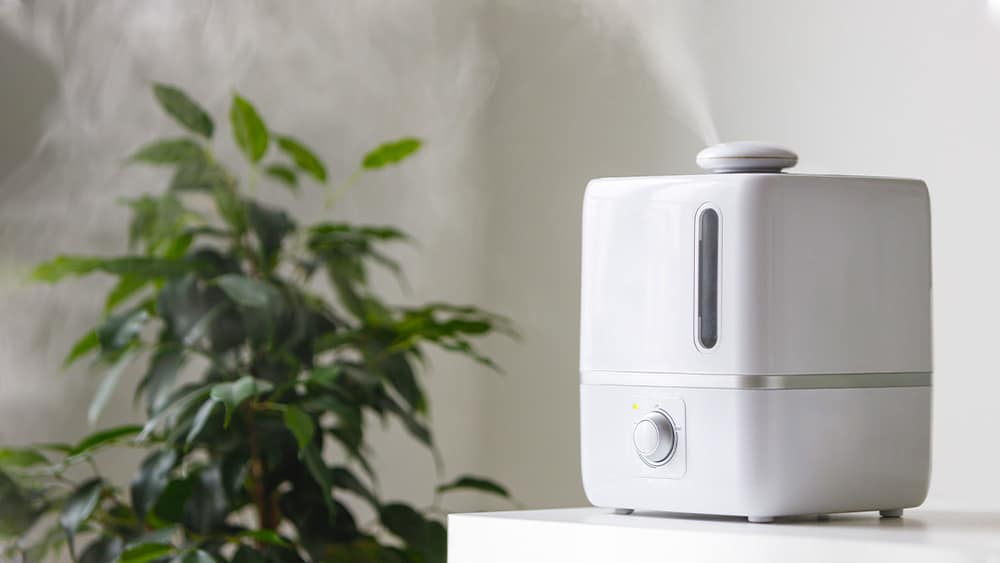A dehumidifier removes moisture from the air, while a humidifier adds moisture to the air. Dehumidifiers are used in humid conditions, while humidifiers are used in dry conditions.
Both devices can help to maintain a healthy indoor environment by regulating humidity levels. Understanding the difference between a dehumidifier and a humidifier is crucial for ensuring the comfort and well-being of your home or workspace. Let’s delve deeper into how each appliance functions, their benefits, and situations where one may be preferred over the other.
By the end of this article, you will have a clear understanding of which device is most suitable for your specific needs.


Credit: www.respiratorytherapyzone.com
Operating Principle
Humidifiers add moisture to dry air, while dehumidifiers remove excess moisture from humid air. These devices have opposite operating principles and are used in different situations to maintain the desired humidity levels in a space.
Dehumidifier Process
A dehumidifier removes moisture from the air to maintain optimal humidity levels in a given space.
Humidifier Process
A humidifier adds moisture to the air to increase humidity levels, especially in dry environments.

Credit: burkholders-hvac.com
Applications
Dehumidifier Uses
- Remove excess moisture from the air
- Prevent mold and mildew growth
- Improve indoor air quality
- Reduce musty odors
Humidifier Uses
- Add moisture to dry air
- Relieve congestion and dry skin
- Enhance breathing comfort
- Alleviate allergy symptoms
Health Benefits
Understanding the health benefits of dehumidifiers and humidifiers is crucial for creating a healthy indoor environment. By maintaining optimal moisture levels in the air, these devices have a significant impact on our health and well-being. Let’s delve into the specific health benefits of both dehumidifiers and humidifiers.
Dehumidifier Benefits
Dehumidifiers play a vital role in reducing the risk of respiratory issues. They help in eliminating excess moisture from the air, thereby discouraging the growth of mold, mildew, and dust mites, which are known to aggravate allergies and trigger asthma attacks. By maintaining a dry environment, dehumidifiers can effectively alleviate chronic respiratory problems and help individuals breathe more comfortably.
Furthermore, dehumidifiers aid in controlling the proliferation of bacteria and viruses by creating an environment that is less conducive to their growth. This can contribute to reducing the spread of illnesses and promoting overall health within indoor spaces.
Humidifier Benefits
Humidifiers are essential for adding moisture to dry indoor air, especially during winter months. Proper humidity levels are beneficial for relieving congestion, cough, and dry throat, particularly in individuals suffering from respiratory issues such as sinusitis and bronchitis. By maintaining the ambient air moisture, humidifiers provide comfort and respite from the discomfort associated with dry air.
In addition, humidifiers play a vital role in promoting skin health, as adequate humidity levels can prevent skin from becoming dry and cracked, contributing to a healthy and hydrated complexion.
Choosing The Right Device
When it comes to creating a comfortable living environment, choosing the right device is crucial. Both dehumidifiers and humidifiers play important roles in maintaining optimal humidity levels in your home or office. However, selecting the appropriate device depends on various factors that need to be considered before making a decision. Let’s explore these factors to ensure you choose the device that best suits your needs.
Factors To Consider
Several factors determine whether a dehumidifier or a humidifier is the right choice for your specific situation. These factors include:
- Climate: Understanding the climate of your region is essential. If you live in a humid area, a dehumidifier will help reduce excess moisture in the air. On the other hand, if you reside in a dry climate, a humidifier will add moisture to the air.
- Health conditions: Consider any specific health conditions you or your family members may have. Those with allergies or asthma may benefit from using a humidifier to alleviate symptoms caused by dry air. Conversely, individuals prone to mold or mildew allergies might require a dehumidifier to maintain a healthy environment.
- Size of the space: The square footage of the area you want to humidify or dehumidify is also an important factor. Larger spaces typically require more powerful devices to effectively regulate humidity levels.
- Energy efficiency: If energy consumption is a concern for you, opt for devices with energy-saving features. Look for devices with ENERGY STAR certification, as they are designed to be more energy-efficient, helping you save money on your utility bills.
- Noise level: Some humidifiers and dehumidifiers can be noisy, which can be disruptive in certain environments. Consider purchasing devices that operate quietly to ensure minimal disturbance.
Decision Making
After considering these factors, it’s time to make a decision. Determine whether you need a dehumidifier or a humidifier based on the specific requirements of your space. Remember, each device serves a different purpose and aims to maintain the ideal humidity levels for different situations.
Once you’ve chosen the right device, take into account important features like capacity, ease of use, and maintenance requirements. Compare different models, read customer reviews, and consider seeking professional guidance if you’re still unsure.
In conclusion, choosing the right device, whether a dehumidifier or a humidifier, plays a significant role in creating a comfortable and healthy living environment. Understanding the factors mentioned above and making an informed decision will ensure optimal humidity levels and contribute to your overall well-being.

Credit: cielowigle.com
Frequently Asked Questions For Difference Between Dehumidifier And Humidifier
What Is Better Humidifier Or Dehumidifier?
A humidifier adds moisture to dry air, beneficial in winter, while a dehumidifier removes excess moisture in humid conditions.
How Do I Know If I Need Dehumidifier?
To know if you need a dehumidifier, check for signs like musty smells, mold growth, or excessive condensation.
Can A Dehumidifier Also Be A Humidifier?
Unfortunately, a dehumidifier cannot also be a humidifier. You will need separate units for each function.
Does A Humidifier Help With Congestion?
Yes, a humidifier helps with congestion by adding moisture to the air, relieving a stuffy nose and aiding in breaking up mucus. It can also alleviate discomfort during colds and the flu. Following the humidifier’s instructions is essential for optimal use.
What Is The Main Difference Between A Dehumidifier And A Humidifier?
A dehumidifier removes excess moisture from the air, while a humidifier adds moisture to dry air.
Conclusion
Understanding the difference between a dehumidifier and a humidifier is essential for maintaining a balanced indoor environment. Whether it’s combating dryness in the winter or excess moisture in the summer, choosing the right appliance can significantly impact indoor air quality and personal comfort.
Make an informed choice based on your specific needs.